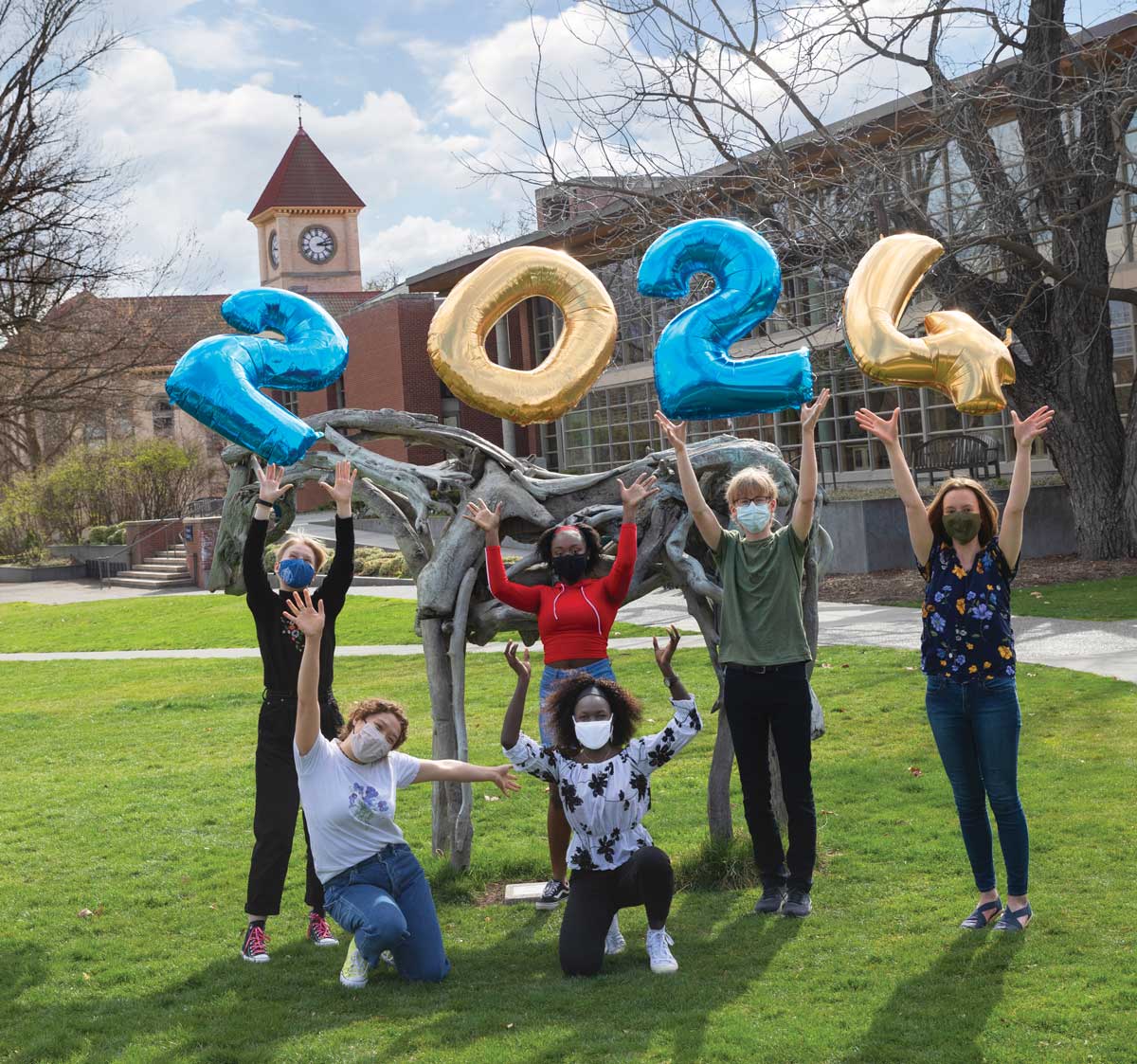Get to Know the Class of 2024
By Genevieve Vogel

Like no class before them, they began at Whitman College virtually. The Class of 2024’s true uniqueness lies, though, in the depth and breadth each of their personal narratives adds to the Whitman community. Read some of their stories.
Published on May 25, 2021